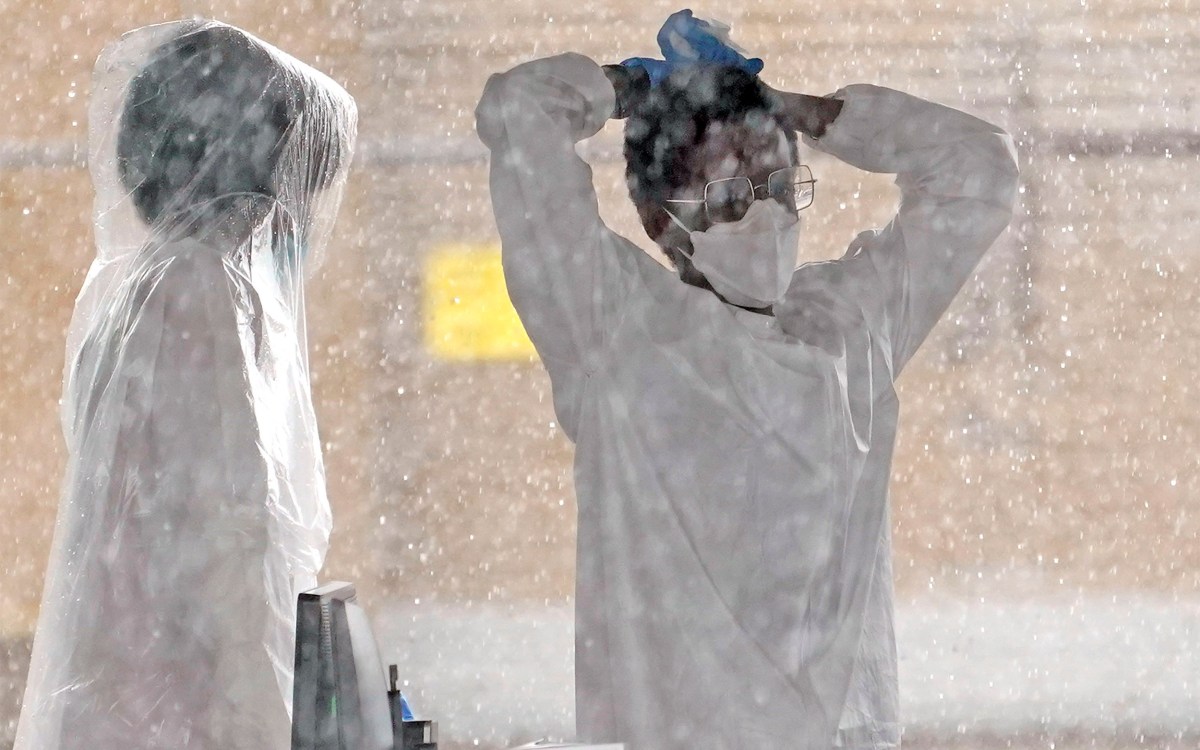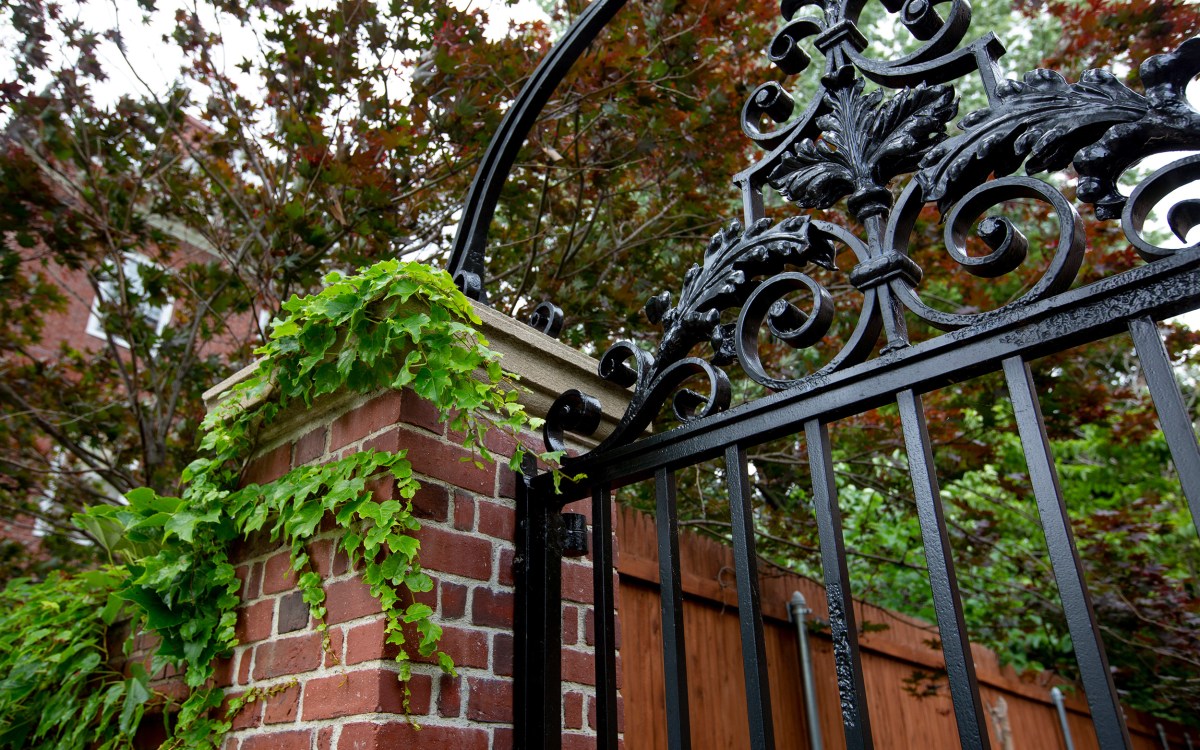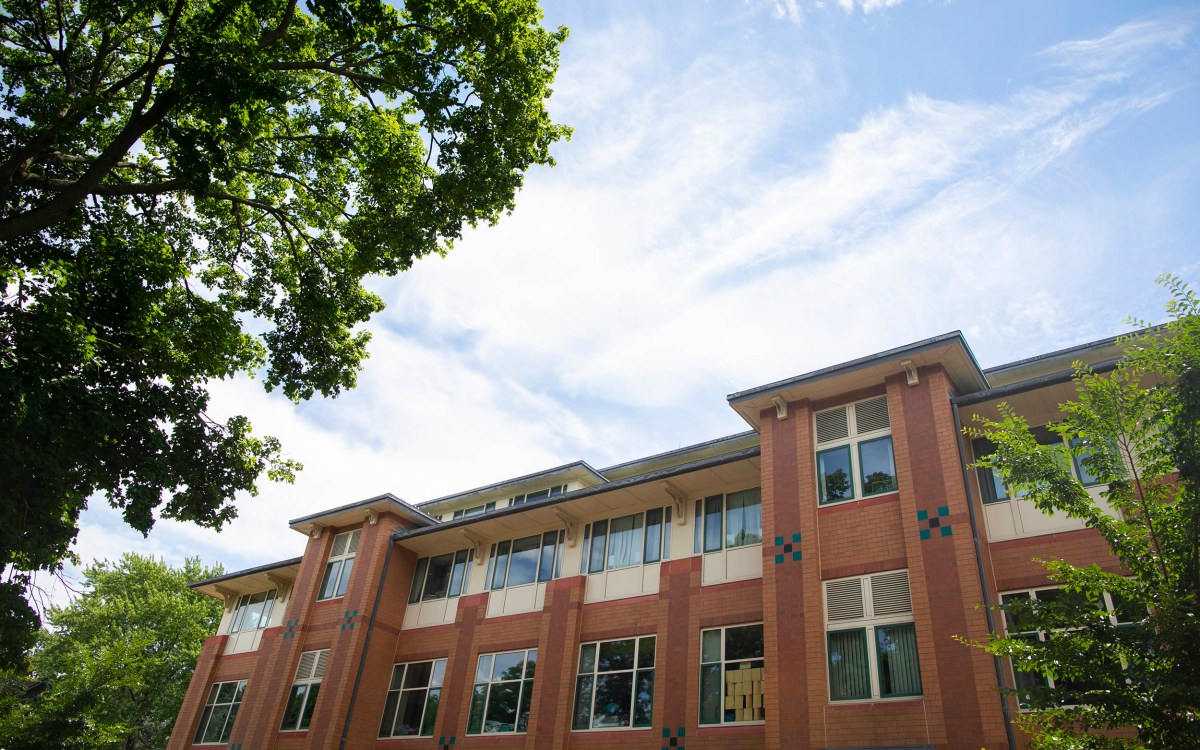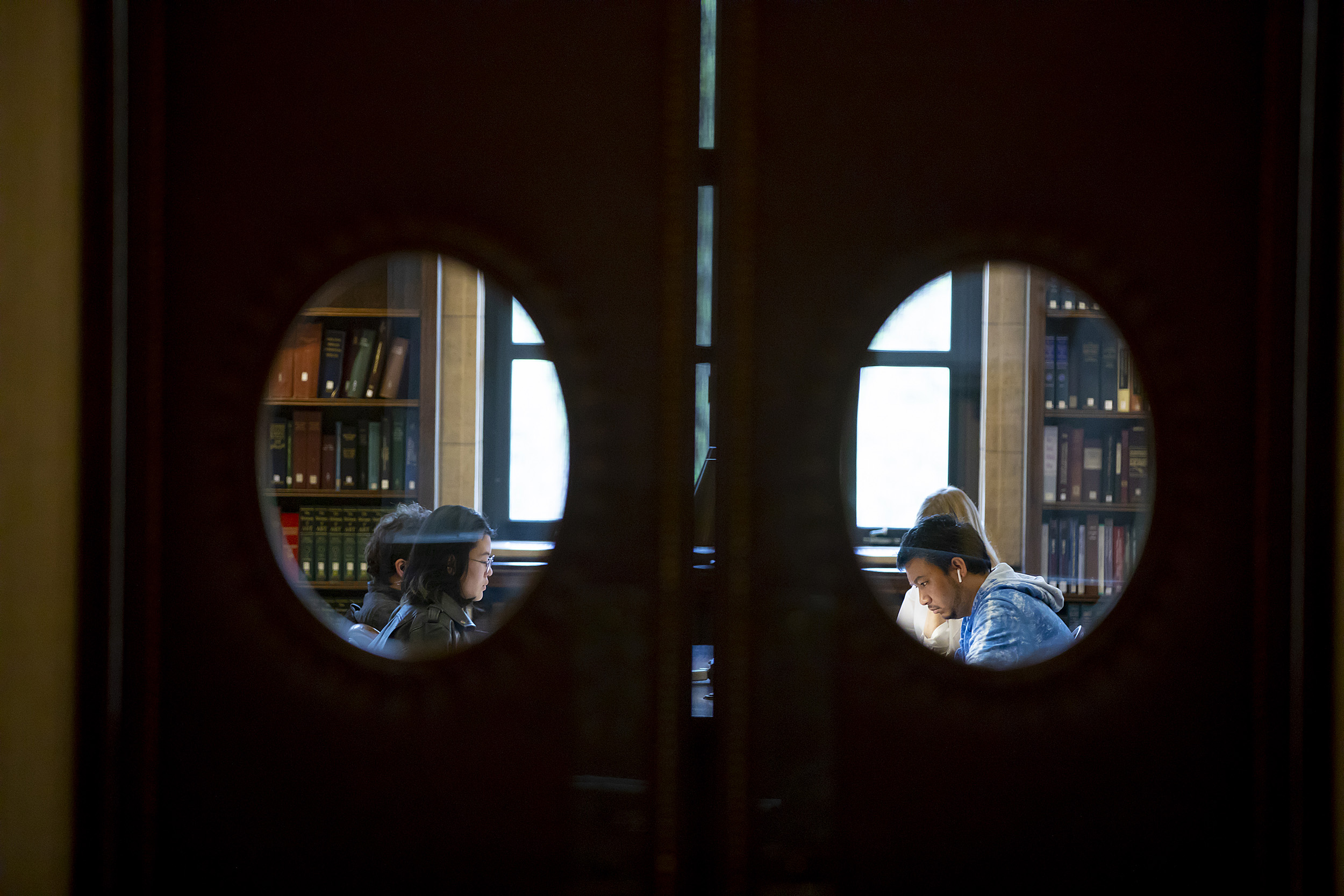
Students at Widener Library during Reading Period.
Rose Lincoln/Harvard file photo
Will coronavirus change college admissions?
Harvard releases statement from 300 admissions deans about what they expect from applicants during pandemic
Applying to college is stress-filled during the best of times. But in the age of coronavirus, the annual effort by high school students to combine their grades, recommendations, test scores, extracurricular activities, and personal essays into standout applications has sent anxiety levels soaring. Some high schools have gone to pass/fail grading, sparking fears about the fallout for GPAs; many extracurriculars have been canceled; and dozens of colleges, including Harvard, have waived standardized tests as a requirement for Class of 2025 applicants, raising concerns among those who feel particularly confident about their test-taking skills. Last week, the Harvard Graduate School of Education released a statement from more than 300 college admissions deans, including William R. Fitzsimmons, Harvard College’s dean of admissions and financial aid, that aims to ease fears by clarifying what the administrators value in applicants during such uncertain times. The Gazette spoke with Richard Weissbourd, faculty director for Making Caring Common’s Turning the Tide, an HGSE initiative focused on underscoring what is important in college admissions, about the statement and how admissions might permanently change in the wake of the pandemic.
Q&A
Richard Weissbourd
GAZETTE: Why did you feel it was important to release this statement from the deans?
WEISSBOURD: There are several reasons, including the misinformation swirling out there. A lot of people have anxieties and questions because it’s such an uncertain time with the SAT and ACT being canceled until the fall, many schools going pass-fail, and other changes. So, it was partly to respond to that anxiety and the deans feeling that they could post things on their websites and communicate with parents individually, but that if they spoke collectively, it might break through a lot of the misinformation and provide reassurance and clarity to students and parents.
Two other things that we were very interested in, and something we work a lot on with admissions deans at Making Caring Common, are equity and assessing context. It’s really important to understand the challenges that kids are facing, to acknowledge that those challenges have suddenly become much bigger, and that you can’t really assess kids fairly unless you understand that context. For example, if a kid is taking care of a sick relative 20 hours a week or supervising a younger sibling 20 hours a week and they’re just getting to their schoolwork and getting B’s and C’s, that’s really impressive and that’s often not captured in an application. Right now kids are home all the time, they may not have a quiet place to read, and they may not have access to the internet. These are the kinds of additional challenges that have been piled on. As a matter of equity, I think deans need to assess and take into account those challenges. The statement encourages students to report these challenges and obstacles and reassures students that what they write will be confidential and will only lead to a more positive review of their applications. A lot of students don’t think to report obstacles in their lives for a variety of reasons, and so we felt encouraging them is very important.
The deans also really authentically want to communicate the message that self-care is important, that students should be gentle with themselves, and that during this difficult time, the goal is not doing extraordinary service of some kind. They want to make it clear that helping address issues with COVID-19 or working for racial justice or registering people to vote are clearly valuable ways to spend one’s time for those who are able. But they don’t want to create a pandemic service Olympics where students are seeking out high-profile opportunities to bolster their resumes. They also want students to know they will primarily base the evaluation of their academic achievements on their work before and after the pandemic.
GAZETTE: Do you think this is a moment for admissions offices to consider reforming the college application process?
WEISSBOURD: I hope so. I hope this is a laboratory moment, a moment where people really try different things and see what the outcome is of trying those different things. A silver lining in this pandemic is that it has created opportunities to rethink and reimagine many things, and college admissions is one of them. A lot of colleges are not going to have standardized test results for many students. And so they’re going to have to figure out alternative forms of assessment or look more deeply into the data that they do have. And what if it turns out that having the SAT or ACT didn’t matter, that they’re still admitting pools of students who are just as engaged and doing just as well without students having to experience the stress and stigma of the high-stakes testing? I think it’s an opportunity to try forms of assessment that don’t clearly favor those with privilege. It’s also an opportunity for admission offices that can do it to try things like short online interviews, or to have students respond to brief prompts on video. It would also be great if an organization emerged that could evaluate actual student work.
“It’s really important to understand the challenges that kids are facing, to acknowledge that those challenges have suddenly become much bigger, and that you can’t really assess kids fairly unless you understand that context,” said Richard Weissbourd.
Stephanie Mitchell/Harvard file photo
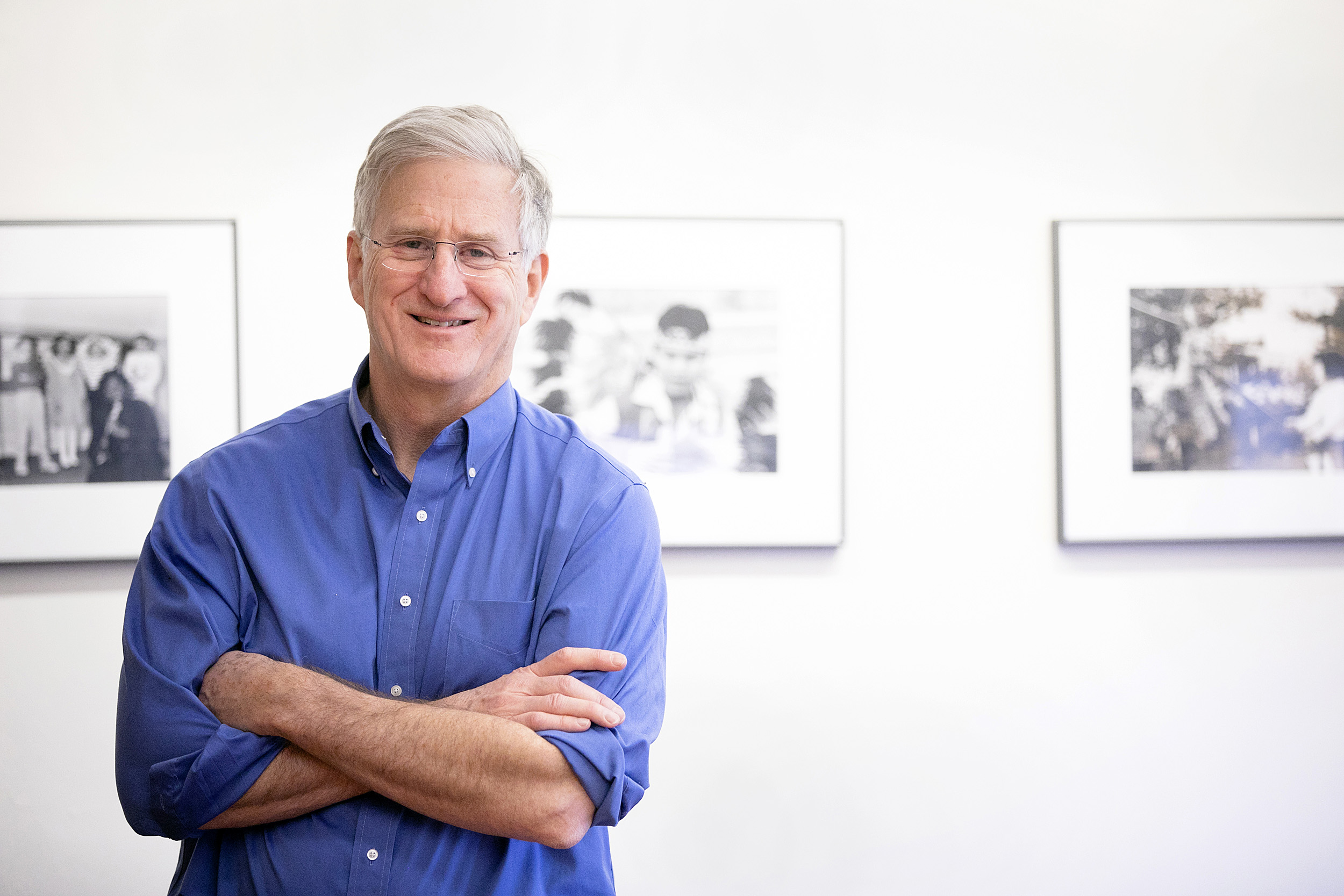
GAZETTE: When you say student work, what do you mean exactly?
WEISSBOURD: What I mean is a high school student’s sample of their writing or a piece of their music or art. There’s a lot of focus these days on performance assessment, meaning that what high school students should be sharing with colleges are actual examples of their work. The problem is that a lot of colleges don’t have the capacity to evaluate that work. So if there was a third party who could evaluate that material and give the information to colleges, that would be a great thing. And some of the deans are calling for that. And I think that could be really important in the era of coronavirus when information about grades is going to be compromised. It’s hard to evaluate grades when there’s been such unevenness in how schools have responded to this pandemic. I think the college admissions deans are going to have to get really creative about thinking about other ways to do this. And those other ways might turn out to be better in the end.
GAZETTE: In the wake of the pandemic, there have been some problems administering the SAT, and more and more colleges are choosing to make the test optional. Can you talk a little bit more about the SAT and its advantages and disadvantages?
WEISSBOURD: The SAT appears to be more useful in predicting success at some colleges than others. For example, at MIT your math score may be a good predictor of success. At other colleges, it looks like the SAT/ACT are really not helpful. I do think there’s a real danger that if you get rid of the SAT/ACT, affluent parents will just find other ways to game the system that won’t do anything to make the playing field any more level. They might even make it less level. You get rid of the SAT/ACT and the attention turns to the number of AP courses you have, or the number of high-profile awards you received, or the number of leadership positions you hold or the number of community-service organizations you started. That’s what you don’t want to have happen because wealthy families will have lots of advantages. They can pay for expensive tutors, and they’ll have greater access to these opportunities for their kids. So without standardized tests, I think it is on colleges to really develop forms of assessment that are more fair and equitable and less vulnerable to that kind of gaming. And that’s a hard thing to do. But I think this is the year to really think hard about how to do that.
GAZETTE: What other ways can college administrators assess student achievement?
WEISSBOURD: One is by understanding grades in context and weighting them accordingly. Many kids have serious family responsibilities or are working to support their families many hours a week. That’s part of the evaluation of the student and it’s weighted. You look at a B from that student differently than you would look at a B from a student who doesn’t have those kinds of responsibilities.
“[The deans] don’t want to create a pandemic service Olympics where students are seeking out high-profile opportunities to bolster their resumes.”
More like this
I think the other way to think about this is to look at student work when you can. And that’s just hard to do with the big state colleges where they’re spending about six or seven minutes per application because they have 60,000 applications. But again, if a third-party organization took that on it would be possible to do with that organization.
Then there are things like the Mastery Transcript Consortium. They’re trying to shift away from traditional grades and have assessments that are based on the mastery of certain skills and knowledge. I think more and more high schools are going to start to turn to those kinds of things. And my sense is that more colleges will start to use the Mastery Transcript as an alternative to grades.
GAZETTE: What are “soft skills” and how do they play a role in the college application process?
WEISSBOURD: I am not a big fan of the term because these are really not soft skills. There’s quite a lot of data that things like self-awareness, curiosity, diligence, perspective-taking, social awareness, collaborative skills, are all really important for college and career success. (Interpersonal, and social emotional, and ethical skills, and being a responsible member of your community and acting with integrity are also connected to work success.) So these are things that are really important to measure if you’re a college and you’re trying to figure out whether a student will be successful at your school. Many of these skills are tied to engagement in college and engagement in college is a strong predictor of work success. So these are important for schools to measure, and colleges really need to pilot a lot of different kinds of measures of these different skills and do a good job defining them and defining what constitutes evidence of them in an application. They need to think about different kinds of assessments, whether those are written assessments or brief interviews, or video prompts, a variety of things. And again, I think this is a year to experiment with a lot of these things.
GAZETTE: Are there other kinds of experiments that you think might be helpful in identifying these kinds of traits?
WEISSBOURD: There may be different types of recommendation forms and additional recommenders that will help colleges find out more about these traits. Maybe you reach out to other recommenders in addition to teachers, including peers or sports coaches, so you are getting multiple recommendations or just rating sheets from different people and looking at where there’s convergence on certain traits.
Part of the problem with recommendations is that they tend to be inflated. People rate things highly on every measure. But what if you said to recommenders, “Name the four characteristics that most describe this person,” so you have to choose between different characteristics? And then you look at which of those characteristics turns out to be most predictive of success at your college over time? So there are a lot of different ways to think about this. Another idea is to come up with an alternative to the SAT/ACT that doesn’t advantage privileged kids in the same way. I’m not advocating for any particular alternative. I’m just advocating for trying and seeing what happens. My guess is that we can do this in ways that are more just and more accurate and create less stress on students.



